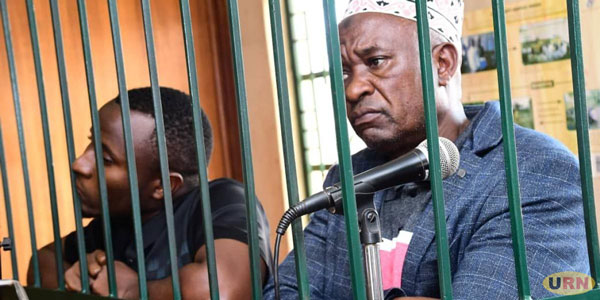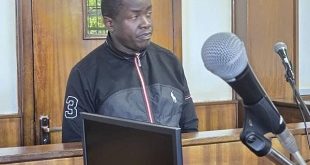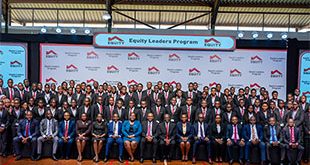
Kampala, Uganda | THE INDEPENDENT | The Uganda Muslim Supreme Council (UMSC) General Assembly, has suspended six delegates for alleged misconduct.
The decision was taken at the UMSC Annual General Meeting at the Old Kampala National Mosque.
The new UMSC Secretary-General Hajji Abbas Sekyanzi Muluubya identified the suspended delegates as Hajj Abdul Kiyimba delegate from Lwengo, Sulaina Kigongo from East Buganda, Kamara Zuraika from Kampala, Musa Muyinda from Rubaga, and Huzairu Ssendegeya from Sheema, along with Yasin Kakuru from Kiruhura.
Hajji Muluubya added that a disciplinary committee has been established to assess the behavior of the delegates. The suspended individuals will be allowed to defend themselves against various accusations leveled against them.
Hajji Muluubya emphasized that the committee’s responsibility is to ascertain whether the members have behaved in a manner inconsistent with the expected conduct of honorable members of the General Assembly.
Sheikh Ramadhan Mulindwa, the Khadi of Luwero District, reported that the committee intends to investigate the participation of suspended members in disclosing details about UMSC, even though they do not hold official or designated spokesperson roles.
The six members were denied access to the general assembly session on Thursday. Although journalists were not present in the meeting room, those locked out said that they were targeted because of their critical stance towards the current administration of UMSC and the Mufti’s control over Muslim affairs.
In an interview with URN, Sulaina Kigongo, a delegate from the East Buganda Muslim region, emphasized that being locked out of the assembly was illegal since they are full members of the assembly. She stated that she intends to take legal action against the UMSC leadership and the General Assembly, expressing her intention to drag them to the courts of law over this action.
During the general meeting, there were reports that a faction of delegates opposed the agenda for the meeting. The proposed agenda included items such as the address of the chairperson, the Mufti, approval and swearing-in of the new UMSC Secretary-General and other members, receiving reports from committees, and passing the budget.
Yasin Kakuru reportedly expressed opposition to the agenda, advocating for the assembly to adopt an alternative agenda specifically focused on addressing the issue of Muslim properties currently at risk due to debts owed to the council arising from land transactions in Sembabule.
“We cannot behave normally in an abnormal situation; Muslim properties are at stake, and we needed the members to address this matter at length and find a solution,” Kakuru told our reporter.
However, Kakuru’s efforts were unsuccessful, and he was forcibly removed from the meeting room, ultimately being expelled from the premises of the national mosque. The incident left him visibly upset.
Hajji Muluubya says the matter was addressed in the session, with assembly members raising questions and receiving detailed explanations about the current status of the land issue, ongoing legal proceedings, and UMSC’s efforts to resolve the impasse.
Muluubya notes that members agreed with UMSC’s approach, receiving assurances that Muslim properties would not be unjustly claimed. He highlighted the assembly’s emphasis on diligent handling of the issue for justice, not only for UMSC but also for other involved parties.
Meanwhile, during the assembly that was attended by 239 members out of the 264, various reports from different sector committees of the council were presented. The assembly also made additional resolutions including approving the UMSC strategic plan and budget that the supreme council will operate with in 2024.
The assembly convened during a challenging period for the Muslim body, marked by escalating concerns over Muslim properties due to a legal case resulting in the attachment of numerous assets by businessman Justus Kyabahwa.
In a recent judgment, the Court of Appeal in Kampala ruled in favor of Kyabahwa, permitting him to proceed with the sale of properties owned by the Uganda Muslim Supreme Council (UMSC).
Justice Christopher Gashirabake presided over the case and dismissed UMSC’s plea for a stay of execution, thereby allowing Kyabahwa to seize nine properties to recover an outstanding debt amounting to 18.9 billion Shillings dating back to 2020.
The legal dispute stemmed from a 2020 agreement in which UMSC sold its Sembabule Ranch land to Kyabahwa for 3.584 billion Shillings through Arthur Kayanja. The agreement, which involved key figures such as Secretary General Ramathan Mugalu, Mufti Shaban Ramathan Mubajje, and Chairman Abdulkadir Idi Balonde, obliged UMSC to transfer land possession within 60 days and settle any associated charges.
The agreement also stipulated that Kyabahwa could seek a refund with a 12% monthly interest rate if he failed to obtain possession within 150 days. Furthermore, UMSC was required to remove a caveat on the land title filed by Enterprise Handling Services Limited (ENHAS) within 60 days.
Upon discovering that the land had already been sold to ENHAS, Kyabahwa petitioned the commercial court, seeking to recover the 18.9 billion Shillings debt accrued over four years.
On August 7th, 2023, the court granted Kyabahwa’s petition, rejecting UMSC’s defense.
Subsequently, on November 16th, a warrant of execution was issued, empowering Kyabahwa to sell nine properties, including the Gadafi Mosque in Old Kampala, for debt recovery. Unhappy with the outcome, UMSC appealed to the Court of Appeal, highlighting their defense dismissal in the High Court on August 7th, 2023.
Deputy Secretary General Muhammad Ali Aluma argued for a stay of execution, underscoring their previous legal efforts to contest the lawsuit.
****
URN
 The Independent Uganda: You get the Truth we Pay the Price
The Independent Uganda: You get the Truth we Pay the Price



